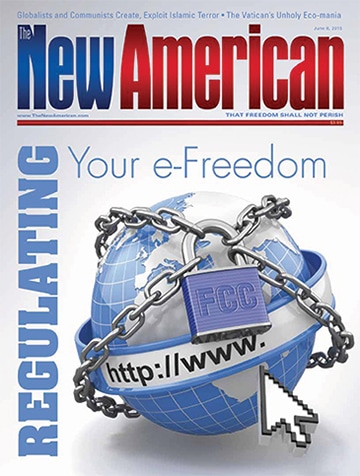Supreme Constitutional Trespass: Marriage
Courts and marriage, courts and marriage; they go together like a cat and carriage. With the Supreme Court possibly poised to strike down the remaining state bans on official recognition of same-sex relationships, it’s lamentable, but important to note, that things have gone this far only because of a universal failure to acknowledge and argue the central point in the faux-marriage debate. This is not merely that, as our Constitution dictates, marriage is no business of the feds. It is something more fundamental, something informing that — except insofar as a state constitution may contain marriage prescriptions — it is, in fact, no business of any court.
If I stated that homosexuals already have a right to marry — to form a matrimonial union with a member of the opposite sex — faux marriage advocates will certainly disagree with the italicized definition. “Who are you to define marriage for everyone else!” is the idea. And this gets at the point: The marriage debate is not about rights.
It is about definitions.
This isn’t disputable because everyone, Right and Left, agrees that all adults have a right to “marry”; apparently, though, many disagree on what marriage is. This brings us to the fundamental problem: How can you determine if there’s a right to a thing before determining what that thing is?
Are the courts supposed to say, “There is a right ... to we know not what”?
Thus, logically, before judges could rule that a same-sex couple has a right to “marry,” they would have to rule that marriage is something other than what millennia of tradition dictate. This is clearly above their “pay grade” philosophically and, insofar as government is involved at all, is the role of state legislatures legally.
The courts’ role in this is especially comical and tragic because the plaintiffs, faux-marriage advocates, do not even bring an alternative definition to courts for consideration. They don’t say, consistently and unabashedly, that marriage is a “matrimonial union between any two adults,” for instance. They simply claim it’s a matter of rights (to, apparently, they know not what).
And being a rights-proclaiming, knot-tying know-nothing is quite convenient here. Since definitions limit and exclude, promulgating their own would rob faux-marriage proponents of an illusory high road: The notion they stand for equality while traditionalists are exclusive and discriminatory. For then they also would be discriminating — against whatever didn’t meet their definition.
Thus, it’s wholly false to say leftists are redefining marriage. Nay. They are “undefining” it.
This reality puts the lie to faux-marriage advocates’ claims that their actions won’t lead to legal recognition of polygamy and other conceptions of “marriage.” They are tacitly saying the right definition is wrong and are destroying its boundaries while refusing to establish new boundaries. But an undefinition excludes nothing — and nothing is precisely what marriage means if it can mean anything.
In reality, conservatives should demand the Left redefine marriage and put its cards on the table. Instead, leftists are allowed to have their faux wedding cake and eat it, too: to refuse to redefine, claim their undefining won’t destroy marriage, all the while campaigning for legal recognition of same-sex relationships under the pretext of “rights.”
Of course, the Left could avoid the definitional problem by claiming that faux marriage is a separate and distinct institution. But this still cuts no ice constitutionally. For the 14th Amendment guarantees equality under the law to individuals. Not institutions.
Were it otherwise, any institution — including interspecies “marriage” — a group conjured up would have to enjoy governmental recognition.
Understanding the definitional nature of this debate places other matters in perspective. For example, expressing a common modernist feeling, Seventh Circuit Court of Appeals judge Richard Posner exclaimed last year to an attorney defending Indiana and Wisconsin marriage laws, “How can tradition be a reason for anything?” But he should have asked — himself, long before — the more basic question: How can anything be a reason for anything?
If churches teaching that marriage is divinely ordained as a male-female union are correct, then its definition is determined by God. If this isn’t so, however, man is then the author. But what men should decide? G.K. Chesterton called tradition “democracy extended through time” because it is the verdict of the countless millions, living and dead, who birthed it, nurtured it, and maintained it. Against that, what do faux-marriage advocates present? A feeling, fad, or fleeting poll result? The spirit of the age against the spirit of the ageless? In truth they present less than that, as they’re too lazy to even formulate their own definition.


